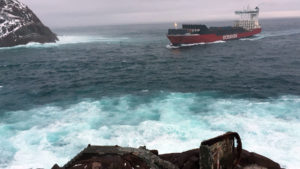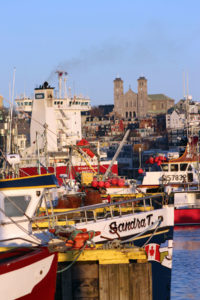Growing up in Newfoundland, we truly thought of ourselves as castaways. An island state plunked down off the east coast of Canada, smack dab in “the middle of nowhere”. We might even be accused of using this as an excuse when we first started our tourism programs, trying to entice travellers to our shores with neither bridge nor tunnel to connect us to the mainland. An unfortunate mistake that we sometimes still defer to, even in these modern times of fast, safe, and affordable air travel. Crazy when you take the time to think about it.
When we started a resort development in Corner Brook back in 1995, we defied the perceived obscurity, for we truly believed it was the most magnificent place on the planet. Aside from the obvious beauty and the many unique attributes found in Western Newfoundland, we placed a great deal of stock in the added testimony of Sir Eric Bowater’s decision to build an estate property in Newfoundland’s Humber Valley; an Englishman whose paper empire was so vast, he could make the same claim as Britain itself, for the sun never set on his horizon. Bowater could have chosen any location on the planet, and he picked Newfoundland, as did his wife, Lady Margaret, when they chose to build a summer residence on the banks of the Humber River.
Corner Brook is indeed spectacular, but in a less technologically advanced time, it must have seemed like a true Nirvana to the Bowater’s and their guests.
Newfoundland’s summer temperatures are moderated by its coastal waters (there’s no place on the island where you can stand more than 100kms from the ocean), a true comfort before the dawn of air conditioning.
An abundance of precipitation, massive watersheds, and a brimming aquifer means that Newfoundland doesn’t require treatment systems and we have no fear of drought. Crystal clear, naturally filtrated waters abound, making an idyllic environment for boating, drinking, cleaning, swimming, recreating, and viewing pleasures.
“Sports” would also enjoy a most unique angling environment, completely devoid of all freshwater fish. Only salmonids (trout and salmon which can survive in both salt and fresh water) exist in Newfoundland’s waterways, having returned from the oceans to re-establish sole claim to the island following the last ice age when the glaciers finally retreated from the land.
Newfoundlanders are a coastal people who derived their livelihood from the ocean waters. Thus, the interior of the island was nearly completely devoid of people or development; a true wilderness experience, much of which remains unexplored to this day despite the many hiking and canoeing routes that exist. Abundant waterfowl and sea birds would make excellent shooting prey, and the woodland caribou provided visitors with an excellent source of fresh meat and huge, trophy sized antlers.
Of course, yachting was a favorite activity, both as a mode of transportation, and a most efficient means to explore the many bays, inlets and waterways that inundate over 10,000 miles of spectacular coastline. As my father often reminds us, “How did people ‘Jet Set’ before there were planes?” They used sailing schooners, yachts, and ketches.
Which brings us to what might have actually been Newfoundland’s finest attribute. Before the dawn of commercial air travel, we’d make every voyage aboard ship, and our proximity to England would have been the greatest luxury of all. A journey considered so short, we still refer to the Atlantic Ocean as a “Pond”, that they’d gladly “Skip across” to enjoy the many wonders of this New Found Land.
Can’t wait for you to pitch. See you at the airport.




